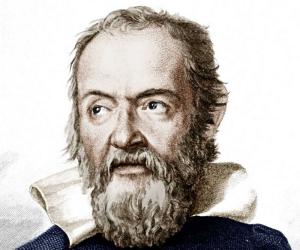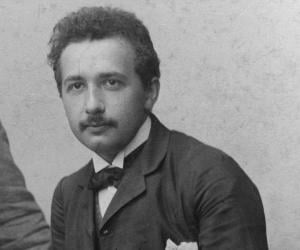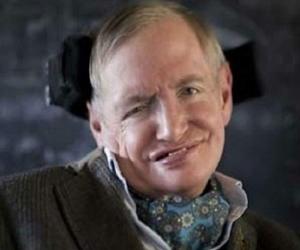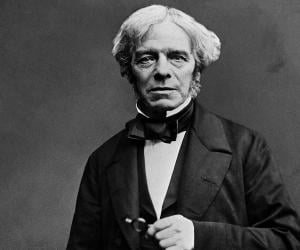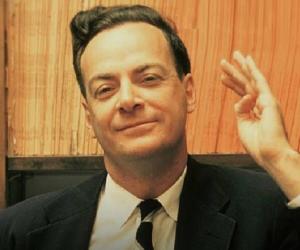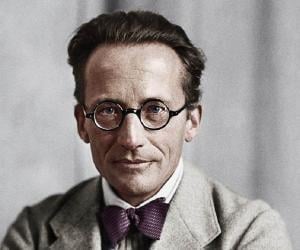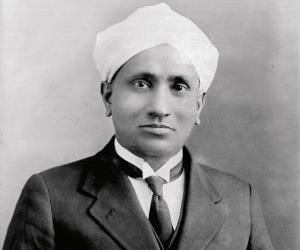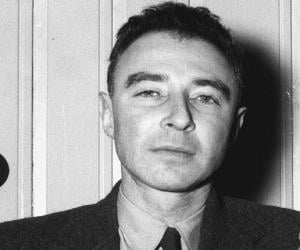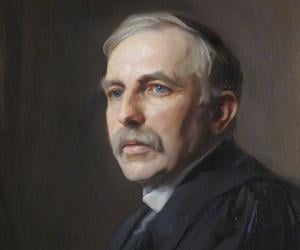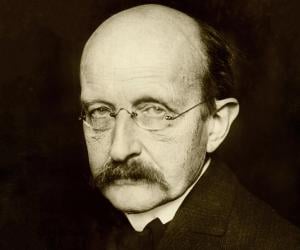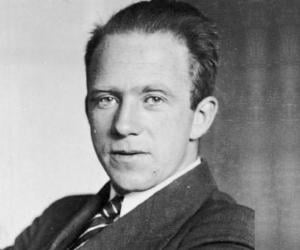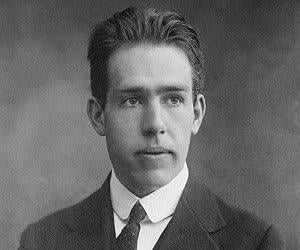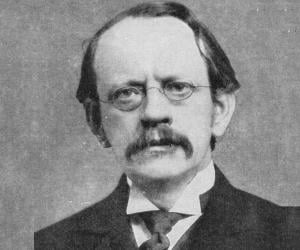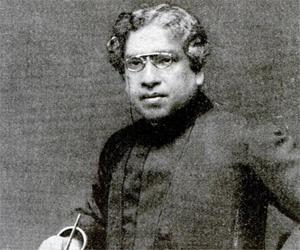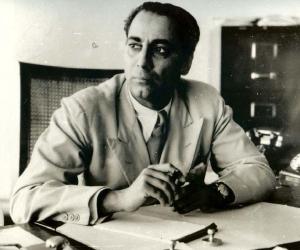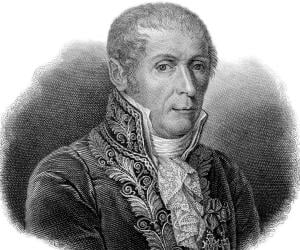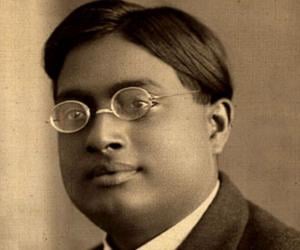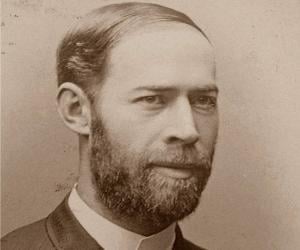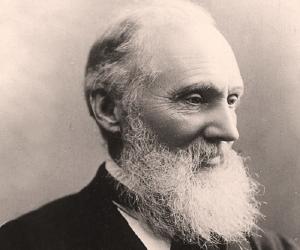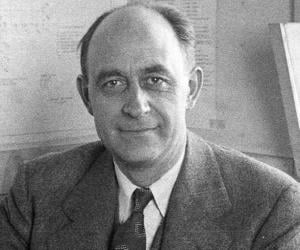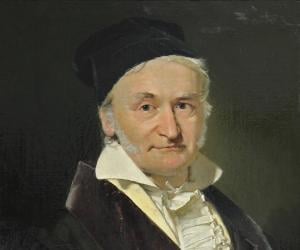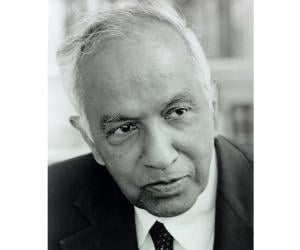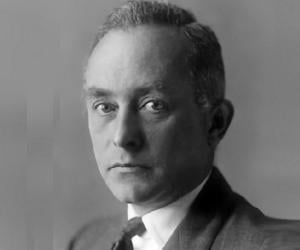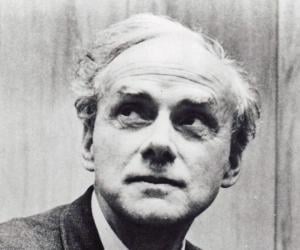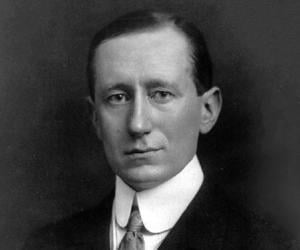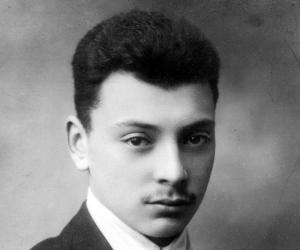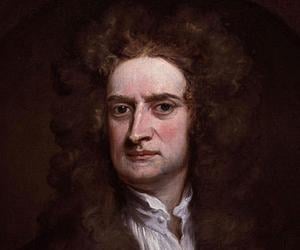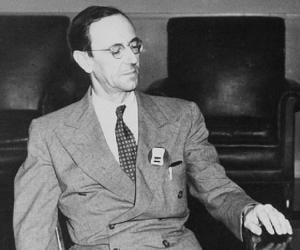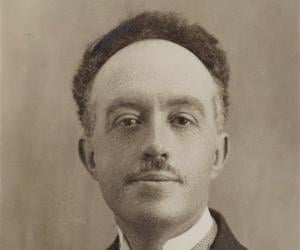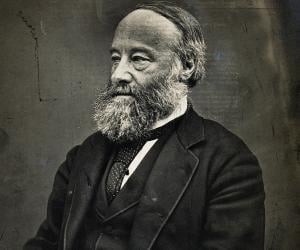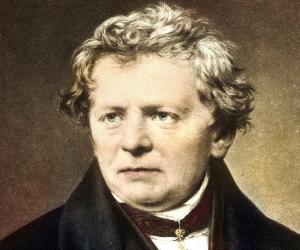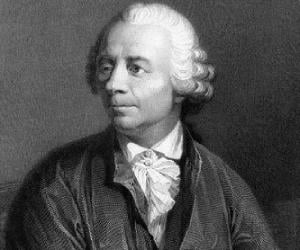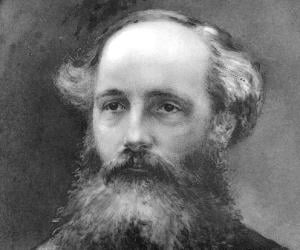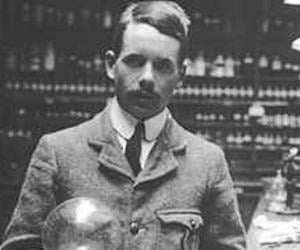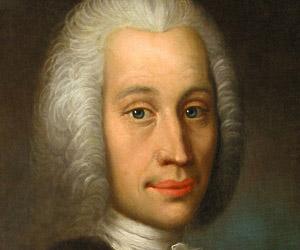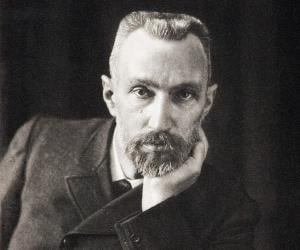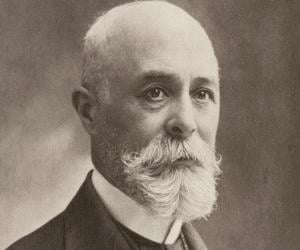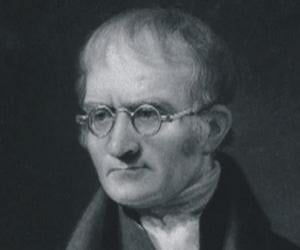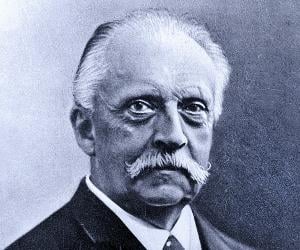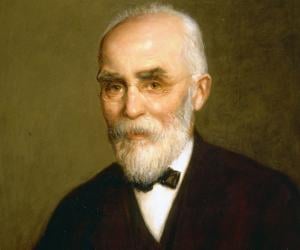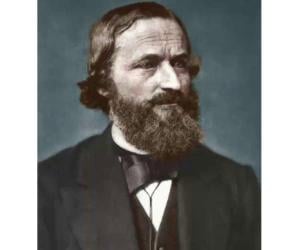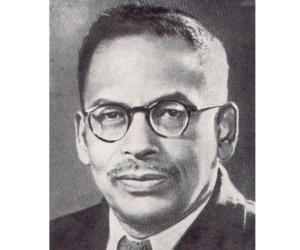An Italian astronomer, engineer, and physicist, Galileo Galilei is widely regarded as the father of observational astronomy, the father of the scientific method, the father of modern physics, and the father of modern science. He is credited with popularizing the telescope, which changed the course of history.
Stephen Hawking was an English theoretical physicist and cosmologist, who despite being afflicted motor neurone disease that severely limited his physical abilities, was able to build a phenomenally successful career. He was the first to set out a theory of cosmology explained by a union of the general theory of relativity and quantum mechanics. Hawking was ranked 25 in the BBC's poll of the 100 Greatest Britons, in 2002.
Michael Faraday was an English scientist known for his contribution to the study of electrochemistry and electromagnetism. Considered one of the most influential scientists ever, Faraday's inventions of electromagnetic rotary devices established the basis for electric motor technology. His research also helped understand the concept of the electromagnetic field. Ernest Rutherford called him one of the greatest scientific discoverers ever.
Theoretical physicist Richard Feynman won the Nobel Prize in Physics in 1965, along with Julian Schwinger and Shin'ichirō Tomonaga, for his research on quantum electrodynamics. He also contributed to the development of the atomic bomb. Feyman made it to Physics World’s list of the 10 greatest physicists of all time.
Hailed as a brilliant scientific mind, American physicist J Robert Oppenheimer, led the Manhattan Project which resulted in the development of atomic bomb during the World War II. The bombs were dropped on the Japanese cities of Hiroshima and Nagasaki in 1945. However, Oppenheimer was in a constant conflict over the moral issue of the weapons of mass destruction and rallied against nuclear proliferation.
New Zealand physicist Ernest Rutherford is remembered as the father of nuclear physics. His discovery of radioactive half-life and of radon, and his differentiation of alpha and beta radiation, won him the Nobel Prize in Chemistry in 1908. Element 104 was named rutherfordium in his honor.
This 17th-century German mathematician, astronomer, and astrologer is remembered for his pathbreaking work on optics. He invented a developed version of the refracting telescope. He also laid down Kepler's laws of planetary motion and wrote Astronomia Nova, Harmonices Mundi, and Epitome Astronomiae Copernicanae.
German theoretical physicist Max Planck is remembered for originating the quantum theory of physics, which earned him the 1918 Nobel Prize in Physics. He laid down concepts such as the Planck constant and the Planck postulate. The Kaiser Wilhelm Society was later renamed Max Planck Society in his honor.
Blaise Pascal was a French physicist, mathematician, philosopher, and inventor. A child prodigy, Pascal's work on projective geometry, at the age of 16 is commendable. He is one of the earliest inventors of the mechanical calculator, which he did when he was still a teenager. His work on probability theory influenced the development of social science and modern economics.
J. J. Thomson was a British physicist credited with the discovery of the electron, the first subatomic particle to be discovered. He was awarded the Nobel Prize in Physics in 1906 for his work on the conduction of electricity in gases. In 1884, he was appointed Cavendish Professor of Physics at the University of Cambridge.
Indian physicist, biologist, and plant physiologist Jagadish Chandra Bose revolutionized science with his research on how plants and animals react to external stimuli. He founded the Bose Institute, made pioneering contribution to the field of radio and microwave optics, and also penned one of the first works of Bengali science fiction.
Padma Bhushan-winning physicist Homi Bhabha revolutionized the Indian nuclear program singlehandedly. Born into an affluent family, he was educated at Cambridge. Initially geared toward a career in mechanical engineering, he later drifted to physics, eventually contributing to the formation of TIFR. The Bhabha Atomic Research Centre is named after him.
Best known for working with Albert Einstein to form Bose–Einstein statistics, Indian scientist Satyendra Nath Bose was a master of quantum mechanics. He played the esraj, loved poetry, and had mastered quite a few languages. The Padma Vibhushan winner was also made a Fellow of The Royal Society.
Heinrich Hertz was a German physicist best remembered for proving the existence of electromagnetic waves with conclusive evidence. For his contributions, Hertz has been honored around the world by a number of countries, including Japan, Russia, and Germany. In 1930, the International Electrotechnical Commission established hertz (Hz) as the SI unit for frequency.
Lord Kelvin was a British mathematical physicist and engineer. He studied at the Glasgow University and proceeded to teach there as well. Besides his academic career, he also had a career as an electric telegraph engineer and inventor. He received the Royal Society's Copley Medal in 1883. Absolute temperatures are stated in units of kelvin in his honor.
German mathematician and physicist Carl Friedrich Gauss is remembered for his work in math and science. Known as the Princeps mathematicorum, he laid down tenets such as the Gauss's Law. He had exhibited his talent since an early age and had completed writing Disquisitiones Arithmeticae by 21.
Remembered for his varied contribution to astrophysics, Subrahmanyan Chandrasekhar is perhaps best known for his work on the evolution of massive stars. Today known as Chandrasekhar limit, it contributed to final understanding of supernovas, neutron stars, and black holes. A prolific writer, he also did significant work on energy transfer by radiation in stellar atmospheres and convection on solar surface.
From proposing the wave theory of light to discovering the actual shape of the rings of Saturn and inventing the pendulum clock, Dutch scientist Christiaan Huygens had contributed a lot to science. Born to a diplomat, Huygens had the privilege of an elite education but remain sickly throughout his life.
English theoretical physicist and Nobel laureate Paul Dirac OM FRS, counted among leading physicists of the 20th century, made fundamental contributions in the early development of quantum electrodynamics and quantum mechanics. He derived the Dirac equation while the modern theory of antimatter began with one of his papers. His book The Principles of Quantum Mechanics remains an influential monograph on the subject.
Guglielmo Marconi was an Italian electrical engineer and inventor best remembered for his work on long-distance radio transmission. Marconi, who is credited with inventing the radio, was honored with the 1909 Nobel Prize in Physics for his work in the field of wireless telegraphy. Also a businessman, Marconi founded the Wireless Telegraph & Signal Company in 1897.
Nobel Prize-winning Austrian physicist Wolfgang Pauli is remembered for his contribution to quantum physics and for laying down the Pauli principle. While he was initially married to a cabaret dancer, the marriage ended in a divorce after a year. His written works are considered classics in science.
One of the most influential and popular scientists of all time, Sir Isaac Newton played a prominent role in our understanding of natural phenomena. He formulated the law of universal gravitation and laws of motion. He also developed the Newtonian telescope among other devices. Apart from science, Newton was also intrigued by religion, occult, and alchemy.
Best remembered as a Nobel laureate who discovered neutron, Sir James Chadwick began his career at Cavendish Laboratory, Cambridge, where he worked with Ernest Rutherford to investigate the nature of atomic nucleus, a work that led to the epoch-making discovery. Credited with writing the final draft of the MAUD Report, he also headed the British team at the Manhattan Project
Louis de Broglie was a French aristocrat and physicist who made important contributions to quantum theory. His de Broglie hypothesis, which suggests that all matter has wave properties, is one of the most important features in the theory of quantum mechanics. In 1929, de Broglie was honored with the Nobel Prize for Physics for his work.
English physicist, and mathematician, James Prescott Joule primarily worked on the nature of heat, in course of which he established that all forms of energy are fundamentally same and therefore inter-convertible. His findings resulted in the development of the first law of thermodynamics and negation of calorie theory. The SI derived unit of energy, the joule, is named after him.
Georg Ohm was a German mathematician and physicist. He is credited with discovering the proportionality between the voltage applied through a conductor and the subsequent electric current, which came to be known as Ohm's law. His work earned him the prestigious Copley Medal in 1841. A prolific writer, Georg Ohm published several papers and pamphlets throughout his career.
Leonhard Euler was a Swiss physicist, mathematician, logician, geographer, astronomer, and engineer. He is credited with making influential and important mathematical discoveries, such as graph theory and infinitesimal calculus. Widely regarded as one of the greatest and most prolific mathematicians of all time, Leonhard Euler also made pioneering contributions to analytic number theory and topology.
Scottish physicist James Maxwell’s contributions included the formulation of the classical theory of electromagnetic radiation and the production of the first light-fast color photograph. His Maxwell–Boltzmann distribution explored the kinetic theory of gases. He has also written poems and was an Elder of the Church of Scotland.
Henry Moseley was an English physicist best known for his development of Moseley's law in X-ray spectra. He made major contributions to the fields of atomic physics, nuclear physics, and quantum physics. He was working at the University of Oxford when World War I broke out, following which he went to volunteer for the Royal Engineers of the British Army.
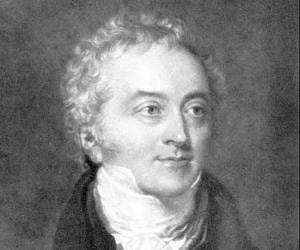
Often referred as The Last Man Who Knew Everything, British polymath Thomas Young made significant contributions to a wide range of subjects like vision, light, energy, musical harmony etc. Especially famous for Wave Theory of Light, he also made significant contribution in deciphering of Egyptian hieroglyphs. Young-Helmholtz theory, Young temperament and Young's Modulus carry his legacy to these days.
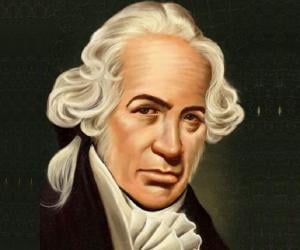
Daniel Gabriel Fahrenheit was a scientific instrument maker, inventor, and physicist. One of the most prominent and influential personalities of the Dutch Golden Age of science and technology, Fahrenheit is credited with many important inventions, including the mercury-in-glass thermometer and Fahrenheit scale. His inventions helped shape the history of thermometry.
A pioneer in crystallography, radioactivity, piezoelectricity, and magnetism, Pierre Curie was a French physicist who won the Nobel Prize in Physics along with Henri Becquerel and Marie Curie. Despite being an atheist, Pierre Curie was fascinated by spiritualism as he believed that spiritual questions deal with physics.
Nobel Prize-winning physicist Henri Becquerel is known for his chance discovery of spontaneous radioactivity. Born into a family of scientists, Becquerel had been an engineer and a physics professor earlier. Marie Curie, who shared the Nobel with him and her husband, Pierre, was one of his doctoral students.
John Dalton was an English chemist, physicist, and meteorologist most famous for introducing the atomic theory into chemistry. He also contributed a lot to the study of color blindness, sometimes referred to as Daltonism in his honor. He was the first scientist to refer to the smallest particle of matter as an “atom.” He was a Quaker and lived modestly.
A descendant of Pennsylvania founder William Penn through his mother, Hermann von Helmholtz studied medicine, pushed by his father, in spite of being interested in the natural sciences. Best known for his law of conservation of energy, he coalesced the fields of medicine, physiology, math, and physics in his studies.
Nobel Prize-winning Dutch physicist Hendrik Lorentz, a major figure of the Second Dutch Golden Age, is remembered for his discovery of the Zeeman effect, along with his former student Pieter Zeeman, who shared the Nobel with Lorentz. His research on electromagnetic radiation prepared ground for Einstein’s special theory of relativity.
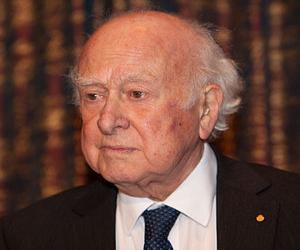
Peter Higgs is a British theoretical physicist. He studied at King's College London and was awarded a Ph.D. in 1954. He went on to have a brilliant academic career and was elected Fellow of the Royal Society (FRS) in 1983. In 2013, he shared the Nobel Prize in Physics with Belgian physicist François Englert.
Gustav Kirchhoff was a German physicist who is credited with coining the term black-body radiation. He is best remembered for his contribution to the basic understanding of spectroscopy, electrical circuits, and the emanation of black-body radiation. In 1862, he received the prestigious Rumford Medal. The Bunsen-Kirchhoff Award is named after Gustav Kirchhoff and German chemist Robert Bunsen.
Indian astrophysicist Meghnad Saha is best remembered for developing the thermal ionization equation. A grocer’s son, he relied on merit alone to excel in academics and eventually became a professor at the universities of Allahabad and Calcutta. He was also a Lok Sabha MP and a Fellow of the Royal Society.
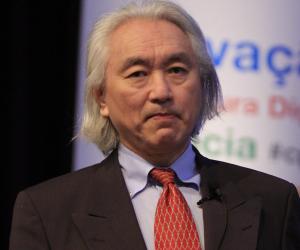
Apart from teaching at the City College of New York, theoretical physicist Michio Kaku also often pens his thoughts in blogs and has written several bestselling books, such as The God Equation. His research is focused on the string theory. He also believes in the existence of aliens.
